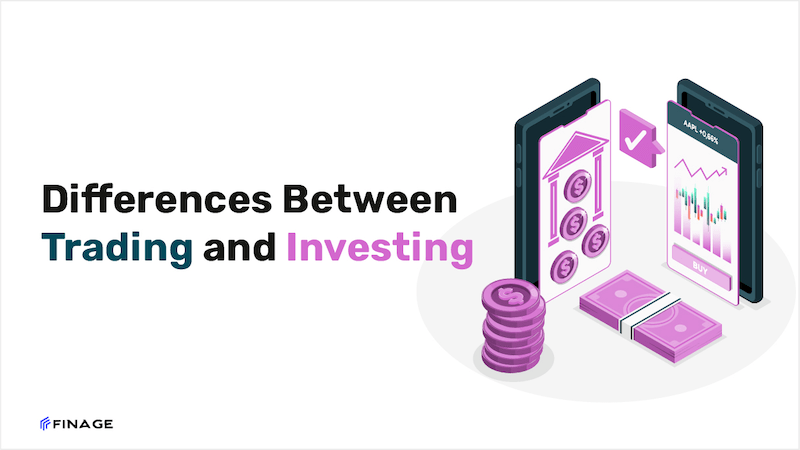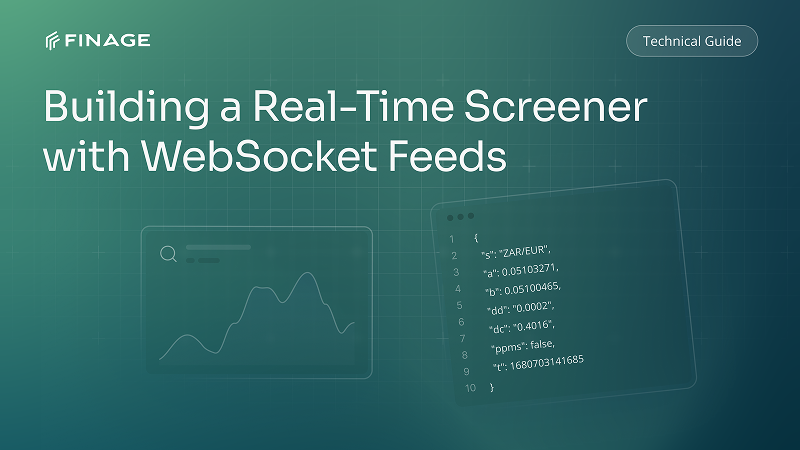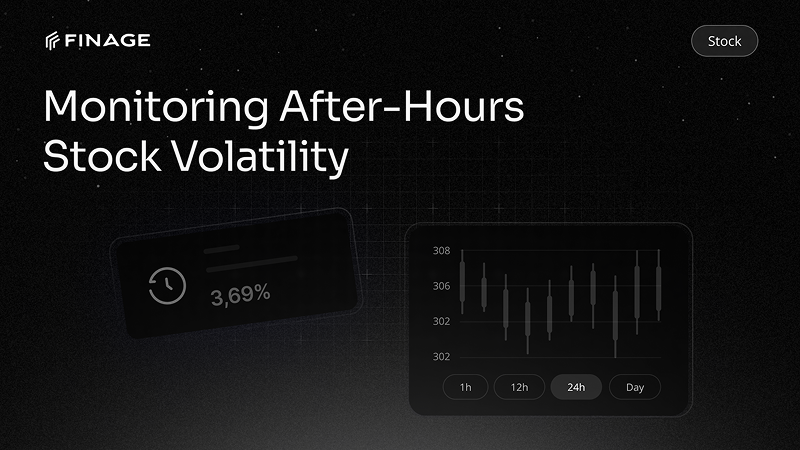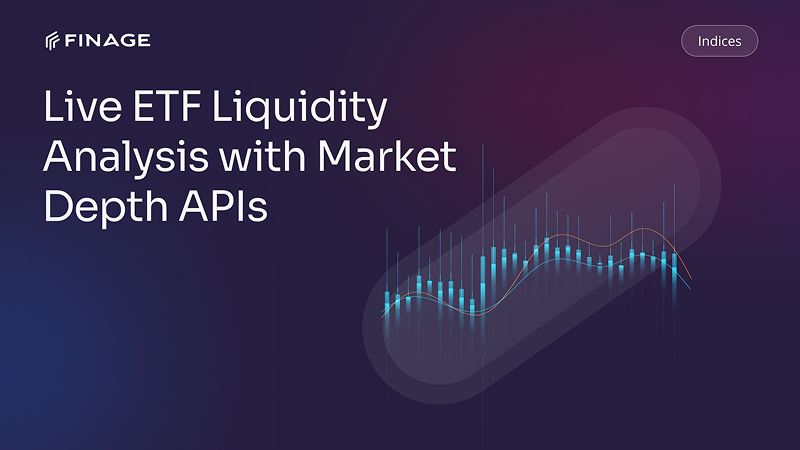Differences Between Trading and Investing
5 min read • January 22, 2023

Introduction
The financial world is filled with many terms and the most crucial ones are trading and investing. One of the most interesting things you will notice is that these words are often used interchangeably. Granted, both acts are done to achieve the same thing through a plethora of methods.
However, they are not at all the same thing as quite a few things separate them. What sets the two apart is the people involved in either act as well as the methods that they use, which contrast each other. To properly make sure that you don't mistake or misidentify them in the future, let’s check their main differences.
Contents:
- What is trading?
- How it works
- What is investing?
- How it works
- How else do they differ?
- Final thoughts
What is trading?
One way of seeing the difference between these two actions is to simply define them. Trading, for example, is defined as the exchanging of commodities and/or positions to gain a profit. Through a frantic routine of buying and selling positions, a trader has to look at the state of the market to gauge whether or not they should buy or sell.
Often, they try to buy a commodity when its value is at its lowest and then sell when at its peak. This isn't the only way to gain profit, however, as traders will also sell high to buy low in what is known as selling short, which takes advantage of downturns.
How it works
Trade can also involve holding a certain commodity and waiting on the market to either rise or fall and this is where the comparisons to investing likely come from. The one theme you will notice when it comes to trading is that it is fast-paced and pretty cyclical. In as little as a month, a whole bunch of trades may have already occurred with the trader who has tried to benefit from the chaotic nature of the market. In short, trades are made to make a profit in the short run.
That said, stock can be held for much longer, which can mean up to a few years. This is something that can depend on how confident a trader is about a commodity that isn't going as planned. None of the above changes the goal, however, which is to achieve profitability in a short holding period and swiftly move on. The holding period will depend on the method you are using in which case, there are four you should know of and they are:
- Position trading which involves a trader holding position for an extended period(from a few months to multiple years);
- Swing trading which focuses on market momentum and has traders holding positions for a few weeks at most;
- Day trading which involves positions held daily and not overnight;
- Scalping which involves very brief position holding, which can last as little as a few seconds.
What is investing?
As mentioned earlier, the often long-term nature of trading can cause you to mistake it for investing. What sets making an investment apart from trading is the fact that profits are made over time.
Through the same market that accommodates trade, investors can find commodities and company stocks to delve into. If it seems promising, they will buy into the idea by actually buying shares which will gradually gain value over a long period.
How it works
When something on the market catches an investor's eye, they will be keen to put their money into the business. Because it is a long-term commitment, returns won't be seen immediately, which directly opposes how trade works. The only way you can see your returns is through whatever plan the company you have invested in presents to you and often, it comes in the form of dividends.
Said dividends can then be used to reinvest in the same business or do the same for alternate stock. This is almost the equivalent of buying and selling in trade, with the only difference being the duration of investments, which can last a lifetime. Sometimes, the indefinite aspect makes it so that those involved don't worry about the chaotic nature of the stock market. Instead, they can simply wait for as long as it takes to see their return.
How else do they differ?
Well, due to their respective characteristics, the two react to the market in very different ways. Daily peaks and valleys in the stock market will affect how traders make decisions as they have much to lose in the short run. This is why they employ many tactics and technologies to both monitors and predict the market.
On the complete flip side, investors only look at their investments sporadically because they look to the distant future to get their money back. That said, they can suffer losses if the company they have invested in ends up in debt or bankruptcy. In such a case, they may end up trying to trade their stock if they see something coming.
As trading and investing are different activities, it brings us to main distinct things: they provide different goals and approaches. Summing up, we can see that:
- Trading is focused on buying and selling assets in a short period of time
- Trading is about making quick profits
- Investing is about getting assets with the expectation of holding them for the long run
- Investing brings earning returns through appreciation or income in the future
- Trading experts are focused on market conditions and fluctuations, making decisions based on tech analysis
- Investing experts use quality research to identify value and potential for growth, making decisions based on long-term prospects
- Crucial to note, trading usually involves a higher level of risk, experts have to take quick decisions and respond to changing conditions
- Investors will tend to use a more passive approach, focusing on diverse decisions for gaining long-term profit and growth.
Final thoughts
It is easy to see that both paths to making a profit are similar in certain ways. The fact that more often than not people take part in both may also have something to do with why they have become synonymous with each other.
Despite this, they are different in not only the strategies used to go about them but how the results come across. Now that you know how to distinguish between the two, you may favor one over the other or realize that both are useful and can bring profit.
You can get your Real-Time and Historical Market Data with Finage free API key.
Build with us today!
Claim Your Free API Key Today
Access stock, forex and crypto market data with a free API key—no credit card required.

Stay Informed, Stay Ahead
Finage Blog: Data-Driven Insights & Ideas
Discover company news, announcements, updates, guides and more


